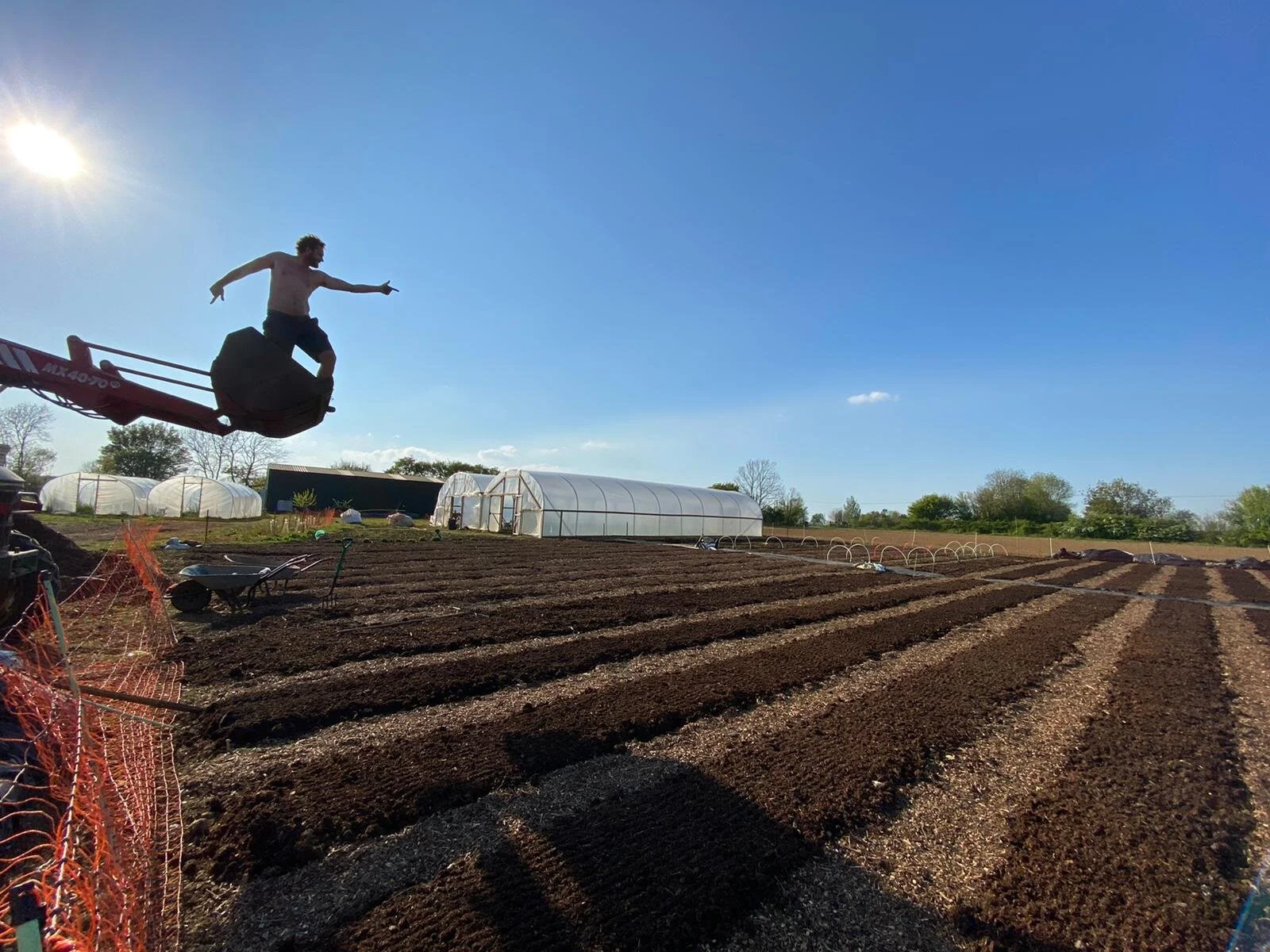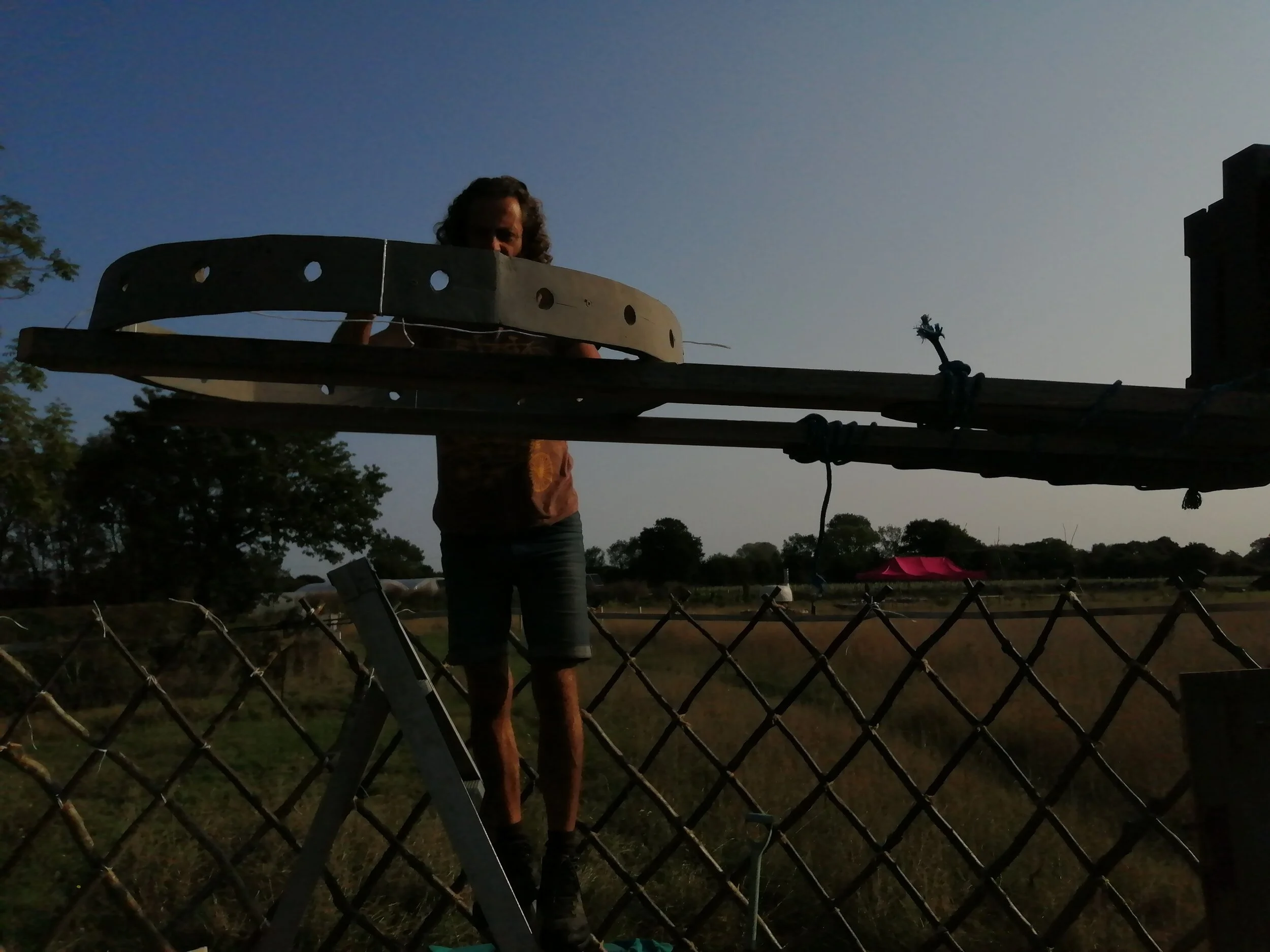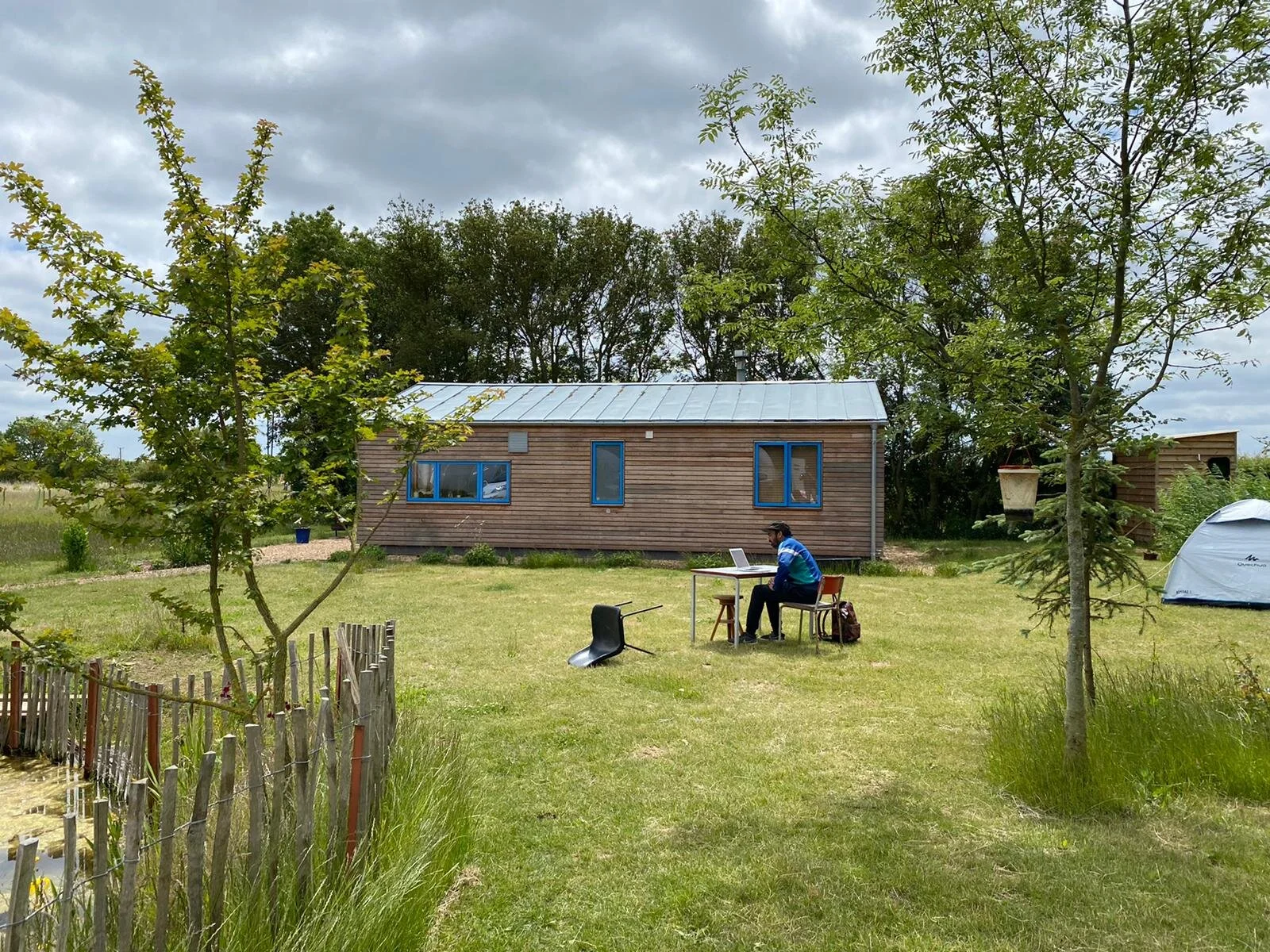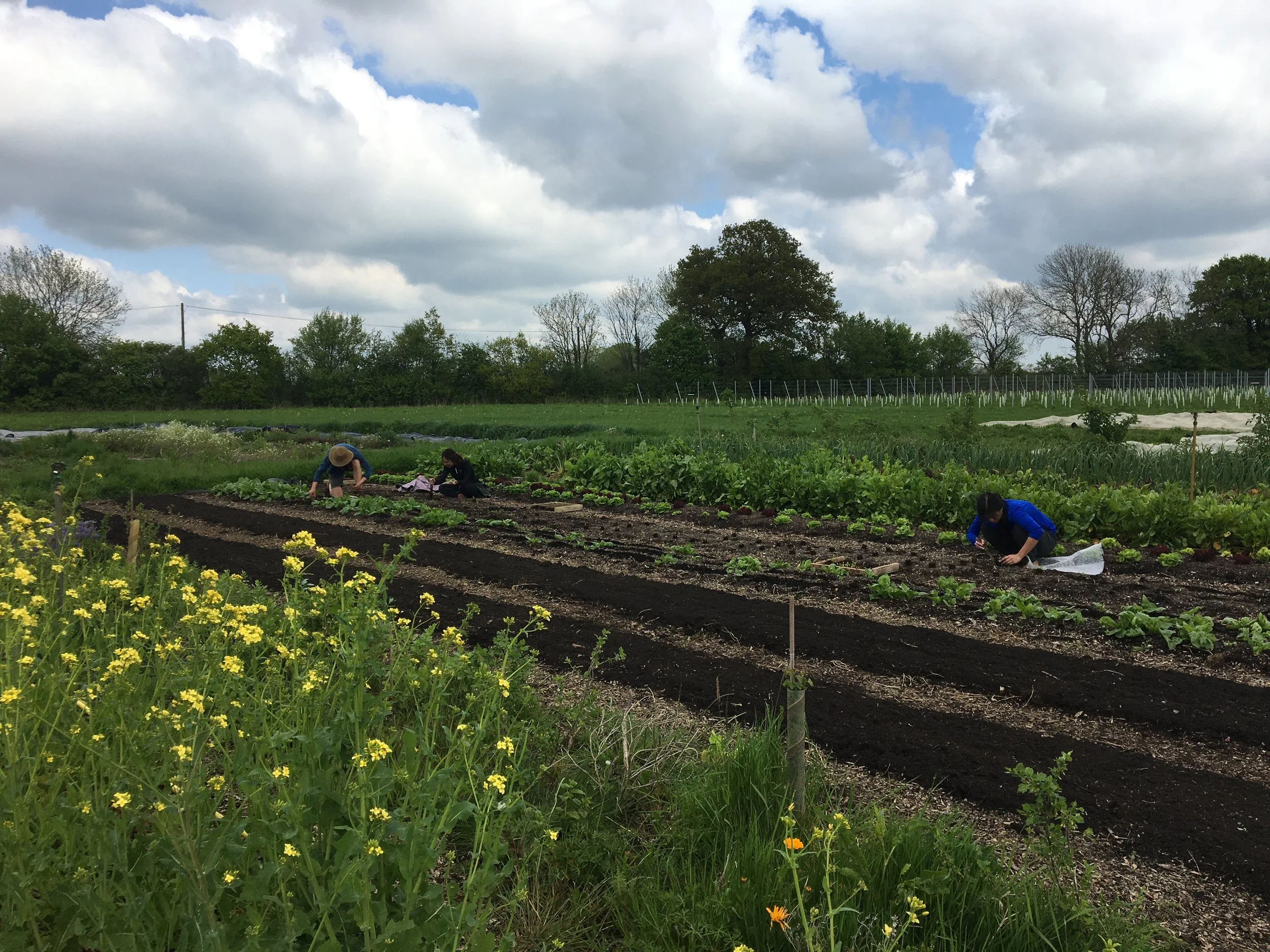In 2014, e5 bakehouse purchased the farm with a plan to grow heritage cereals for the bakery’s bread.
We knew at that time that centuries of extractive agricultural practices had diminished soil fertility and we wanted to play our part in regenerating the soil that our grain was coming from.
We became increasingly conscious that a sustainable relationship with food and the way it is produced is key to our long-term survival on this planet. Sustaining the organisms in soil whilst continuing to produce food is essential, as is finding a method of farming that is in harmony with nature.
With that in mind, we set out to expand our agroecological journey and started a market garden that would provide produce for the e5 bakehouse cafe and retail customers.
Fellows Farm became a place where we could explore ecological farming methods and select and grow specific grains for the team to mill and bake with.
With no running water on site and knowing nothing about growing fruit and vegetables, we began. Over the next few years, various people came to nurture, experiment and grow Fellows Farm into what it is today. Sofia Figueiro, who had experience growing at OrganicLea in London, was an early pioneer, camping at Fellows Farm for almost a year and making good progress despite lack of running water or electricity.
In 2019, e5 bakehouse Founder and Director Ben MacKinnion and family built a small cabin on the site, drilled a borehole and moved in, picking up from Sofia and doing their best to progress the garden. In spring 2020, former chef/baker turned regenerative farmer Lughan Carr arrived and spent the next 2 years creating a thriving market garden, before moving onto a new role at Flourish Produce in late 2021.
As the site was conventionally farmed for more than 100 years, the soil was compacted, had very little organic matter and lacked soil micro biota, so we focussed on regenerating the soil and managing the farm for biodiversity. We dug five new ponds to create hubs for wildlife, planted hundreds of trees along with 15 acres of permanent wildflower meadow and other areas in environmental stewardship. In 2020, we planted a vineyard with Chardonnay, Pinot Noir and Bacchus, and introduced a flock of Soay sheep.
In 2022, Ben and family, as well as a small team, are continuing to evolve the farm, microbakery, weaving studio and campsite. We’re still learning a lot as we go and are spending much of our time this year thinking about diversification and sustainability.







